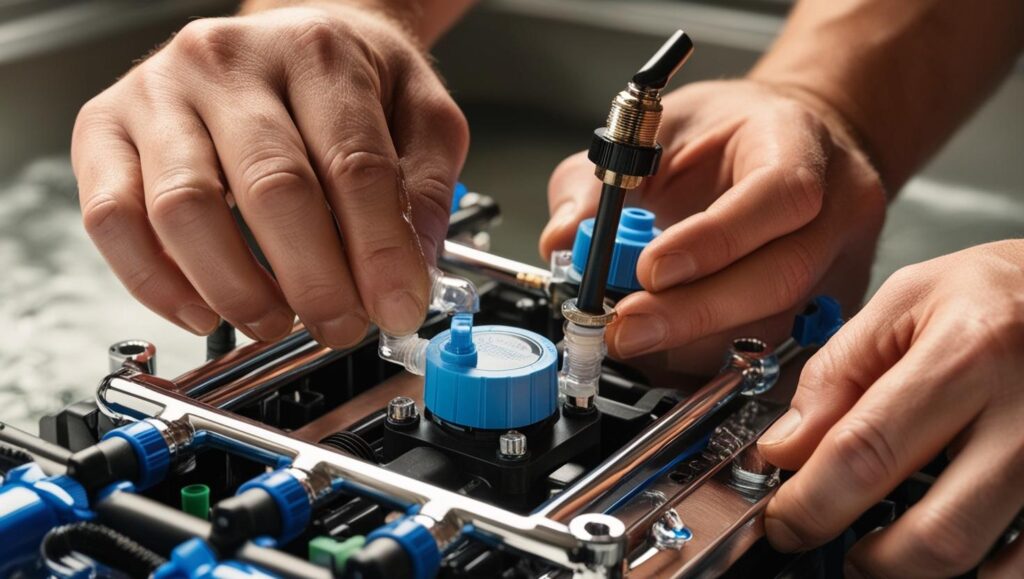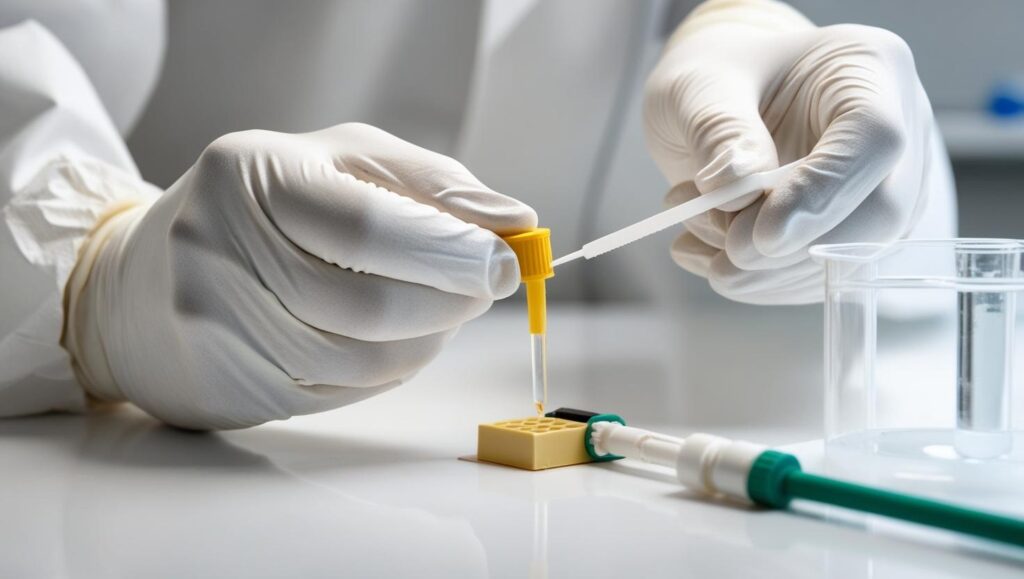Water is essential to daily life. From drinking water to bathing, it’s something we all depend on. But did you know that the safety of our water systems requires professional monitoring? This is where a Water Hygiene Technician comes in. In this blog, we’ll explore the vital role they play in maintaining water hygiene, preventing disease outbreaks, and ensuring compliance with health regulations.
What is a Water Hygiene Technician?
A Water Hygiene Technician is a professional responsible for ensuring that water systems are properly maintained to prevent the growth of harmful bacteria, such as Legionella, which can cause severe illness. They are trained to perform routine checks, risk assessments, and disinfection procedures for water systems in commercial buildings, residential complexes, industrial sites, and healthcare facilities.
Their role is crucial in preventing waterborne diseases and ensuring that water remains safe to use for all purposes, whether for drinking, sanitation, or other operational needs.

Key Responsibilities of a Water Hygiene Technician
1. Routine Inspections and Monitoring
Water Hygiene Technicians regularly inspect water systems, including hot and cold-water systems, cooling towers, tanks, and pipes. They monitor water quality, flow rates, and temperatures to ensure they meet regulatory standards and don’t create conditions that promote bacterial growth.
2. Legionella Risk Assessment
One of the most important duties of a Water Hygiene Technician is to assess the risk of Legionella bacteria in water systems. Legionella outbreaks can be deadly, so technicians are responsible for identifying potential risk areas and taking preventative action. They assess water temperatures, tank cleaning schedules, and water flow to ensure Legionella doesn’t proliferate in water systems.
3. Disinfection and Cleaning Procedures
To ensure that water systems remain hygienic and safe, technicians perform regular cleaning and disinfection of pipes, tanks, and other components. This helps to remove bacteria, debris, and other contaminants that could compromise water quality.
4. Water Sampling and Analysis
Technicians collect water samples and send them to certified laboratories for testing. The water samples are analysed for harmful microorganisms, bacteria, and chemicals. Regular testing ensures water systems stay safe and compliant with health regulations.
5. Compliance with Health and Safety Standards
Water Hygiene Technicians ensure that water systems comply with local, national, and international health and safety regulations. They are familiar with laws such as the Health and Safety at Work Act and guidelines set by organizations like HSE (Health and Safety Executive). This compliance is crucial for preventing fines and maintaining public safety.
6. Installation and Maintenance of Water Treatment Systems
In addition to routine maintenance, Water Hygiene Technicians may be involved in installing water treatment systems or upgrading existing ones. These systems help control water quality, reduce contaminants, and ensure the water supply remains hygienic.
Why is the Role of a Water Hygiene Technician Important?
The importance of a Water Hygiene Technician cannot be overstated. They are vital in:
- Preventing health risks: By monitoring and maintaining water systems, they ensure that harmful bacteria like Legionella do not cause serious health issues, such as Legionnaires’ disease.
- Ensuring compliance: Technicians help businesses, healthcare facilities, and industries stay compliant with water safety regulations, avoiding potential fines and legal issues.
- Maintaining water quality: Safe drinking and operational water are essential to the health and well-being of occupants, whether in homes, offices, or public spaces.
Industries That Rely on Water Hygiene Technicians
Water Hygiene Technicians serve various sectors, including:
- Healthcare Facilities: Ensuring that hospitals and clinics provide clean, safe water to patients and staff.
- Hotels and Hospitality: Maintaining safe water for guests and employees in hotels, resorts, and other facilities.
- Industrial Settings: Ensuring that water systems in factories and manufacturing plants do not pose a health risk to workers.
- Schools and Public Buildings: Providing safe water systems in schools, libraries, and government buildings.
- Residential Complexes: Ensuring that large housing developments or apartment complexes have hygienic and safe water systems.
How Do Water Hygiene Technicians Prevent Legionella?
Water Hygiene Technicians are essential in preventing Legionella bacteria from thriving in water systems. Some of the ways they prevent Legionella growth include:
- Maintaining optimal water temperatures: Legionella bacteria thrive in warm water (between 20–45°C). Technicians ensure that hot water is kept above 50°C and cold water below 20°C.
- Regular cleaning and disinfection: By cleaning water tanks and pipes, they remove organic matter that bacteria can feed on.
- Flushing and water flow management: Ensuring that water does not stagnate in pipes or tanks, which reduces the likelihood of Legionella growth.

In conclusion, a Water Hygiene Technician is a crucial player in ensuring the safety and cleanliness of water systems. They help prevent disease, ensure compliance with regulations, and maintain the quality of water for a wide range of industries and facilities. Whether you’re a facility manager, business owner, or homeowner, having a trained professional on your team can make all the difference in maintaining a safe, hygienic environment.
If you are a Water Hygiene Technician and want to make a difference, Click here to apply or call 01698 324664 and start a new fantastic opportunity!